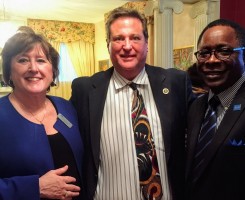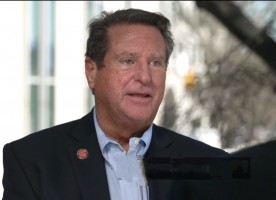Dark money refers to funds spent in politics and lobbying where the donors' identities are not disclosed. Without transparency, it can shape policies and influence elections while raising concerns about the integrity of the political process.
I am concerned about the amount of dark money that is being spent on politics. Enormous sums of money are flowing into political campaigns and parties both at the state and national levels. Unfortunately, we tend to ignore the exorbitant costs of political campaigns and the individuals or organizations that are influencing them. As a result, polarization and partisanship have increased, and the free, open, and civil exchange of ideas has decreased. This is detrimental to improving the lives of citizens.
Political consultants, strategists, and various other individuals such as pollsters, advertisement creators/buyers, and hangers-on receive payment from both political parties. However, most consultants do not seem to be concerned about the essential problems that the average citizens face daily such as education, healthcare, fiscal and regulatory issues, housing, transportation, and economic opportunities. It's hard to believe that this is what our founding fathers had in mind.
The revolving door between government and the private sector, where officials become lobbyists, raises ethical concerns, and can contribute to a perception of undue influence. It’s a complex issue that often sparks debates about transparency and accountability in the political system. State leaders need to craft better policies around these issues.
It is crucial that we push for full transparency when it comes to political donations and passing laws that address the impact of dark money on the political system. Strengthening regulations on campaign financing can help to create a more just and responsible political atmosphere. This will ensure that the political process remains credible and fair for everyone.
Transparency is also critical in policymaking. We must be critical consumers of research, before making policy. Who is paying for the research? Where is it from? Can it be replicated?
Promoting an informed citizenry and reducing the influence of money in politics are essential principles for a healthy democracy. Striving for policies that prioritize the public interest over financial interests contributes to a more robust and representative political system.
Concerns about education have been a long-standing issue in Tennessee, even before it became a state. Recently, Governor Bill Lee has proposed a universal voucher system for education that will be modeled after similar legislation in other states. However, it's important to find Tennessee-specific solutions for Tennessee-specific problems. Education policies must be tailored to the needs of the state, because a one-size-fits-all approach is not effective.
The voucher debate will be intense. While Tennesseans debate the issue, we hope that outside influences and outside state dollars do not influence elected leaders more than their constituents. I have already read and heard of politicians being threatened by opposition or support for their political position on this issue. That is unfortunate. Our politicians should never be for sale to the highest bidder, nor should they be intimidated.
If we have learned anything since 1776, it is an informed citizen is the most critical element for good government or better public policy. Rational debate is the key to a healthy democracy. Laws shaped through thoughtful discussions lead to better outcomes. It ensures that all voices are heard, promoting progress and community. Dark money harms policies and silences citizen voices.
##
JC Bowman is the executive director of Professional Educators of Tennessee











